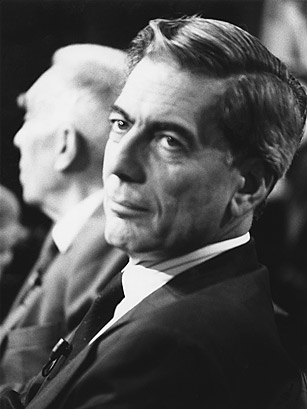
Sometimes presidential elections are total snooze affairs. But sometimes they are thrilling encounters, not just for issues of the day but also for the electric personalities on the ticket. The 1990 presidential race in Peru was such a campaign. The South American country was coming off a horrific decade that saw Zimbabwe-like hyperinflation and the haunting specter of leftist terrorism thanks to Shining Path rebels who hung dead dogs from lampposts after taking over rural villages.
Such a disastrous climate motivated the literary lion and renaissance man Mario Vargas Llosa to throw his hat into the ring. A onetime supporter of Fidel Castro, Vargas Llosa came to fear a closed society for his Peru, and so he pushed a free-market platform centered on austerity. But the poverty-stricken Peruvian populace greeted his daring campaign with more than a healthy dose of skepticism. Racier passages from his works like The Green House, a story that takes place in a brothel, were read aloud in Lima. Many also deemed as subversive his vast collection of politically motivated plots in books like Conversation in the Cathedral, which takes on despair during a Peruvian dictatorship. Vargas Llosa's cosmopolitanism also became an issue. And his fair-skinned complexion became a symbol among poorer and often indigenous Peruvians that his true loyalties lay with an elite class of mostly Italian and Spanish descent. Indeed, working-class Peruvians threw their support behind Alberto Fujimori, a Peruvian-born agricultural engineer of Japanese heritage who pledged to jump-start the rural economy.